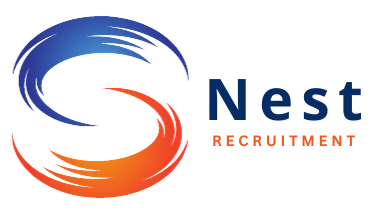Healthcare Recruiting Tips: Avoid These Common Mistakes
In the fast-paced world of healthcare, finding and retaining top talent can be a challenging task. As you navigate the complex landscape of healthcare recruiting, it's crucial to avoid common pitfalls that can hinder your success. This article aims to provide you with valuable healthcare recruiting tips to help you steer clear of these mistakes and improve your staffing strategies.
You'll discover key insights on building a strong talent pipeline, recognising the importance of soft skills in candidates, and staying ahead of market trends. By understanding these critical aspects of healthcare recruitment, you'll be better equipped to attract and retain skilled professionals, enhance the candidate experience, and implement effective retention strategies. Whether you're new to healthcare staffing or looking to refine your approach, these recruitment tips will help you avoid costly errors and streamline your hiring process.
Failing to Build Strong Talent Pipelines
In the competitive healthcare industry, building a strong talent pipeline is crucial to your organisation's success. Failing to do so can leave you struggling to find qualified candidates when you need them most. To avoid this common mistake, you need to focus on three key areas: developing relationships with educational institutions, implementing internship programmes, and nurturing passive candidates.
Developing Relationships with Educational Institutions
Establishing partnerships with universities, colleges, and vocational schools is an effective way to create a steady stream of potential candidates. These collaborations allow you to:
- Influence curriculum design to align with industry needs
- Participate in job fairs and campus events
- Offer guest lectures and workshops to showcase your expertise
By engaging with students and faculty, you can shape the future workforce and position your organisation as an attractive employer. This approach also helps you tap into a diverse pool of talent, bringing fresh perspectives and innovative ideas to your team.
Implementing Internship Programmes
Internships serve as a valuable tool for both your organisation and aspiring healthcare professionals. By offering internships, you:
- Provide hands-on experience to students
- Evaluate potential employees before making long-term commitments
- Contribute to the development of future healthcare leaders
Successful internship programmes often lead to higher retention rates and greater job satisfaction among those who transition to full-time roles. To make the most of your internship programme:
- Define clear goals and expectations for both interns and your organisation
- Assign meaningful projects that challenge and engage interns
- Implement a structured feedback system to support their growth
Nurturing Passive Candidates
Passive candidates, who make up about 70% of the global workforce, can be a valuable source of talent for your organisation. To engage these professionals effectively:
- Develop a compelling employer brand that showcases your values and culture
- Offer continuous learning and professional development opportunities
- Use social media and professional networks to build relationships over time
Remember, passive candidates often possess the specific skills and experience you need, but they require a more nuanced approach to recruitment. By focusing on these three key areas, you can build a strong talent pipeline that ensures your organisation has access to the best healthcare professionals when you need them most.
Overlooking the Importance of Soft Skills
In healthcare recruiting, it's easy to focus solely on technical skills and qualifications. However, overlooking the importance of soft skills can lead to missed opportunities and potential mismatches. Soft skills, such as communication abilities, emotional intelligence, and adaptability, play a crucial role in providing high-quality patient care and fostering a positive work environment.
Assessing Communication Abilities
Effective communication is vital in healthcare settings. You need to evaluate candidates' ability to:
- Explain medical terms and procedures in a way patients can understand
- Build rapport with patients and their families
- Listen actively and empathetically to patients' concerns
- Communicate clearly with colleagues and other healthcare professionals
Strong communication skills contribute to better patient outcomes, increased patient satisfaction, and improved compliance with treatment plans. When assessing candidates, look for those who can demonstrate empathy, compassion, and the ability to adapt their communication style to different situations.
Evaluating Emotional Intelligence
Emotional intelligence (EQ) is a key factor in healthcare recruiting. Candidates with high EQ are better equipped to:
- Recognise and manage their own emotions
- Understand and respond to others' emotions
- Build strong relationships with patients and colleagues
- Navigate challenging situations with empathy and sensitivity
To assess emotional intelligence, pay attention to candidates' self-awareness, empathy, and social skills during interviews. Look for those who can reflect on past experiences, demonstrate understanding of others' perspectives, and show adaptability in their approach to different scenarios.
Considering Adaptability and Resilience
Healthcare is a dynamic field that requires professionals to adapt to changing circumstances and cope with high-pressure situations. When recruiting, consider candidates who demonstrate:
- Flexibility in their approach to problem-solving
- Ability to remain calm and focused under stress
- Willingness to learn and embrace new technologies or procedures
- Resilience in the face of challenges or setbacks
By prioritising these soft skills alongside technical qualifications, you'll be better positioned to build a resilient, compassionate, and effective healthcare team that can provide exceptional patient care and contribute to a positive work environment.
Ignoring Market Trends and Competitor Analysis
In the rapidly evolving healthcare sector, staying informed about industry developments and adapting your recruitment strategies accordingly is crucial. Failing to do so can leave you at a significant disadvantage in attracting top talent.
Staying Informed About Industry Developments
To remain competitive, you need to keep abreast of the latest trends shaping healthcare recruitment. The U.S. Bureau of Labour Statistics projects an annual shortfall of 193,100 nurses through 2032, while the Association of American Medical College anticipates a shortage of 124,000 physicians in the next decade. These statistics highlight the pressing demand for healthcare professionals and the need for innovative recruitment approaches.
To address these challenges, you should:
- Leverage digital platforms to expand your talent network
- Utilise specialised job boards like Jama Career Centre and Health eCareers
- Implement a multi-channel approach, including social media and email marketing
Benchmarking Recruitment Practises
Benchmarking has become an essential tool for continuous quality improvement in healthcare recruitment. By comparing your practises with industry leaders, you can identify areas for enhancement and implement best practises. To effectively benchmark your recruitment strategies:
- Carefully prepare the benchmarking process
- Monitor relevant indicators
- Involve staff in the process
- Conduct inter-organisational visits to learn from peers
Adapting to Changing Candidate Expectations
The healthcare workforce landscape has transformed significantly in recent years. To attract and retain top talent, you must adapt to the changing expectations of candidates:
- Recognise the 'millennial mindset' of modern workers who value flexibility and work-life balance
- Offer flexible scheduling options, including part-time positions and unusual shift hours
- Embrace digital recruitment methods, such as virtual events and text messaging
- Showcase your organisation's culture and values through social media and your website
By staying informed about market trends, benchmarking your practises, and adapting to changing candidate expectations, you can enhance your recruitment strategies and secure the best talent for your healthcare organisation.
Conclusion
Healthcare recruiting is a complex field that requires a thoughtful approach to avoid common pitfalls. By focusing on building strong talent pipelines, recognising the importance of soft skills, and staying up-to-date with market trends, organisations can improve their chances of attracting and retaining top-notch healthcare professionals. These strategies have a significant impact on the quality of care provided and the overall success of healthcare institutions.
To wrap up, the key to successful healthcare recruiting lies in adopting a holistic approach that goes beyond just filling vacancies. It involves nurturing relationships with educational institutions, valuing soft skills alongside technical expertise, and adapting to the changing expectations of healthcare professionals. By keeping these factors in mind, healthcare organisations can build resilient teams capable of meeting the evolving challenges of the industry and providing exceptional patient care.











